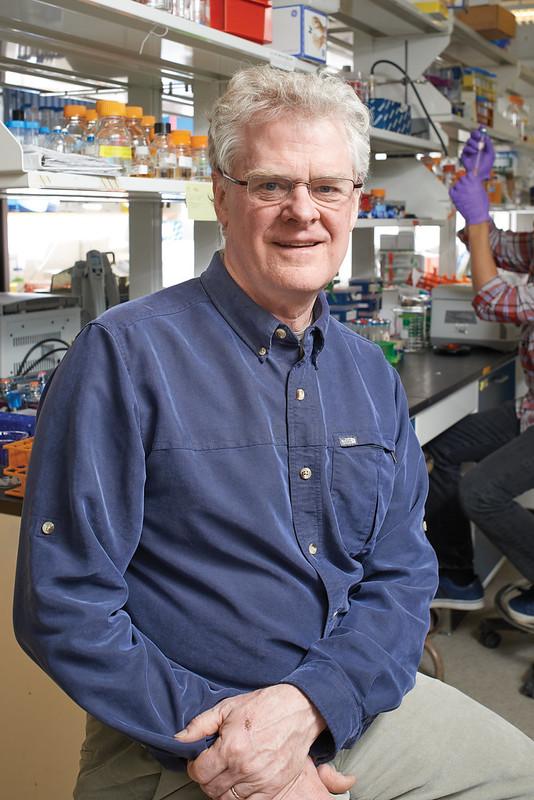
Credit: John Sherman/Dartmouth Engineering
Lee Lynd, the Queneau Distinguished Professor of Engineering at Dartmouth, will be the founding director of the new Advanced Second Generation (A2G) Biofuel Laboratory located at the University of Campinas (Unicamp) in Brazil. The lab’s mission is to develop and enable technology to sustainably produce bioethanol, an alternative to fossil fuel, from inedible agricultural products at a much lower cost than is currently possible.
Lynd, who has a long history of involvement with Brazil, will continue to lead the Lynd Lab at Dartmouth, which also aims to cost-effectively produce cellulosic biofuels for the benefit of people and the environment. The Dartmouth lab focuses on switchgrass and poplar feedstocks, while the A2G lab concentrates on sugar cane, which is a plentiful feedstock in Brazil but not in the US.
“Brazil is a distinctively advantageous location to move forward cellulosic biofuels because it is one of the parts of the world that can grow biomass the best, and because biofuels are a big part of the Brazilian identity and economy,” said Lynd. “I’m glad to have added resources and a bigger team to devote to these efforts.”
The A2G biofuels lab targets strategies for second-generation ethanol production that reduce the cost of production. Once optimized for ethanol, these strategies could also enable commercial production of other renewable fuels, including hydrocarbons.
A member of the Dartmouth faculty since 1987, Lynd is an expert on utilization of plant biomass for production of energy. Spanning science, technology, and policy domains, and including leading research on fundamental and biotechnological aspects of microbial cellulose utilization, his body of work includes more than 250 publications, more than 34,000 citations, and nine granted patents.
Lynd is co-founder, Chief Scientific Officer (CSO), and Director of biofuel start-up Enchi Corp., Consolidated Bioprocessing Team Lead for The Center for Bioenergy Innovation, and founder and Executive Committee Chair of the Global Sustainable Bioenergy Initiative. Previously, he was co-founder, CSO, and Director of Mascoma Corp., co-leader of The Role of Biomass in America’s Energy Future project, and a biofuel industry representative on a committee advisory to the executive office of President Clinton on reducing greenhouse gas emissions from personal vehicles.
He has three times testified before the US Senate and is a Fellow of the American Association for the Advancement of Science (AAAS). He has received numerous awards and honors, including being named the inaugural recipient of the Lemelson MIT Sustainability Prize for inventions and innovations that enhance economic opportunity and community well-being while protecting and restoring the natural environment; he also won the Charles D. Scott Award from the Society for Industrial Microbiology and Biotechnology (SIMB) for distinguished contributions to the field of biotechnology for fuels and chemicals.
Financial support for the A2G biofuels lab comes from the Sao Paulo Research Foundation (FAPESP) through its Sao Paulo Excellence Chair program, which enables distinguished international scholars to initiate research activities at academic institutions in the state of Sao Paulo. The lab will be co-hosted by theCentro de Biologia Molecular e Engenharia Genética (CBMEG), and Faculdade de Engenharia Quimica(FEQ) at Unicamp.
As international academic travel begins to resume, Lynd plans to spend two months at the A2G lab in the coming year, and a month each for the following four years of the grant period. In addition, two of the Dartmouth Lynd Lab’s group leaders–Dartmouth Engineering professor Daniel Olson and research scientist Evert Holwerda–will spend a month at the A2G lab per year.
“Labs are just starting to reopen in Brazil,” said Lynd. “The next step for us will be ordering equipment and retrofitting the lab. We have six Unicamp PhD students who will be supported by this lab, and we hope to have them physically there starting later this year.”
Media Contact
Julie Bonette
[email protected]
Original Source
https:/




